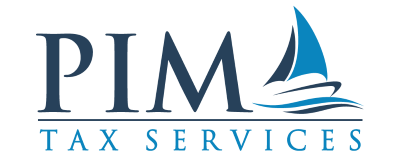Updated for 2025
Over the years, I have spoken with many new landlords who are both surprised and frustrated by the tax consequences of renting out their property. Often, they decided to convert their home or condo into a rental without fully understanding the tax implications. Unfortunately, that lack of preparation can lead to both financial and emotional stress.
In an effort to help others avoid these surprises, here is my updated Top 5 list of tax considerations for new landlords in 2025. Whether you are a first-time property owner or an experienced investor, these points will help you better understand the tax side of real estate rental income.
1. Your Mortgage Payment Is Not Fully Deductible
It would be simple if your mortgage payment could be directly deducted from your rental income. In that case, you could calculate profit like this:
-
Rent collected: $1,200/month
-
Mortgage payment: $1,000/month
-
Net income: $200/month, or $2,400/year
Unfortunately, the IRS does not allow it to work that way.
Your mortgage payment typically includes four components:
-
Principal – The amount applied toward reducing the loan balance
-
Interest – Deductible as a rental expense
-
Property Taxes – Deductible as paid
-
Homeowner’s Insurance – Deductible as paid
The principal portion is not deductible as an expense. Instead, you recover the cost of the property gradually through depreciation (discussed later). This is a critical distinction for anyone expecting to deduct the full mortgage payment.
2. Treat Your Rental Like a Business — and Keep Proper Records
When you rent out a property, the IRS and most states view this as operating a business. For example, in Virginia, rental income is reported and taxed as a business activity.
Operating a business means maintaining clear and accurate records. A box of receipts is not a system. At a minimum, a spreadsheet works for one or two properties. For multiple rentals, consider using professional accounting software.
A best practice is to open a separate bank account for your rental activities. Avoid mixing personal and rental expenses. This not only makes your bookkeeping cleaner but also demonstrates that you treat your rental as a legitimate business operation.
3. There Are Creative — and Legal — Ways to Manage Expenses
Within legal limits, landlords can make strategic decisions that reduce taxable income. Here’s one example:
If your 14-year-old son mows the lawn for your rental property, you could pay him a fair rate, such as $80 per week. Over a typical mowing season, that totals $1,920. You must issue him a W-2, but if his income is below the filing threshold, he will owe no federal or state income tax. Because he is under 18 and employed by his parent, there are no Social Security or Medicare taxes due.
You receive a $1,920 rental expense deduction, and he has $1,920 in earned income. You could then contribute that amount to his Roth IRA, where it could grow tax-free for decades.
While this is a legitimate strategy, always seek professional tax guidance before implementing creative deductions. Tax laws change frequently, and you want to ensure you are complying with current laws.
4. Understand the Passive Activity Loss (PAL) Rules
Under current federal law, rental activity is considered a passive activity and generates passive income. Losses from passive activities — called Passive Activity Losses (PAL) — are usually deductible only against passive income.
However, there is a special allowance for residential rental real estate:
-
If your Modified Adjusted Gross Income (MAGI) is $100,000 or less, you may deduct up to $25,000 in PAL against non-passive income (such as wages).
-
This deduction phases out as your MAGI rises above $100,000 and is completely eliminated at $150,000 MAGI.
If your losses exceed these limits, they are suspended and carried forward to future years. You can use these suspended losses against future passive income or upon the sale of the property. For landlords with higher incomes, tracking suspended losses is essential so that you can benefit from them later.
5. Depreciation — and Depreciation Recapture — Still Apply in 2025
Depreciation is a method of recovering the cost of your rental property over time. For residential rental property, the IRS requires straight-line depreciation over 27.5 years. Here are key points to remember:
-
Only the building is depreciated — land is not.
-
The cost of improvements made before placing the property in service is added to the property’s basis and depreciated over 27.5 years.
-
Improvements made after the property is placed in service are also capitalized and depreciated separately over 27.5 years.
-
Starting in 2025, 100% bonus depreciation is available for certain qualifying assets used in your rental property (e.g., appliances, certain renovations). This means you may be able to deduct the full cost in the year the asset is placed in service.
When you sell the property, the IRS will require depreciation recapture, which means paying tax on the portion of gain equal to the depreciation you claimed (or could have claimed). The only ways to avoid recapture are to complete a 1031 exchange or pass away while still owning the property.
Although repaying depreciation can be unpleasant, it is often financially beneficial in the long term. The ability to claim depreciation now is essentially an interest-free loan from the IRS, but you never have to repay it if you never sell the property.
Final Thoughts
Becoming a landlord can be profitable, especially when you understand and apply the tax benefits available to you. But there are also pitfalls that can reduce your returns if you are unprepared.
If you are considering renting your property — or if you are already a landlord but want to ensure you are maximizing your real estate tax strategy — seek professional guidance. A well-planned approach can mean the difference between a rental that simply breaks even and one that builds long-term wealth.


